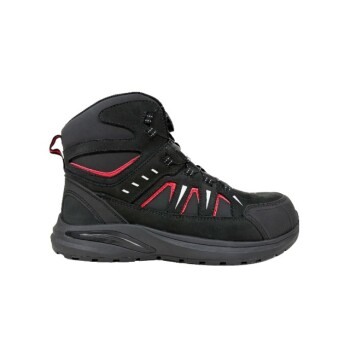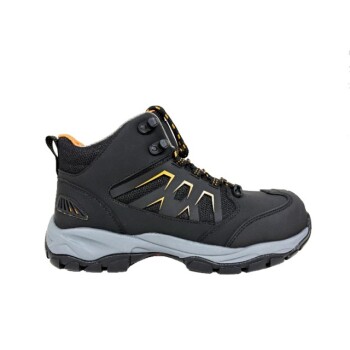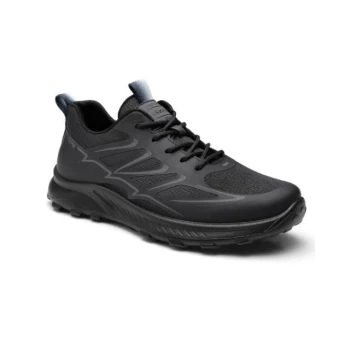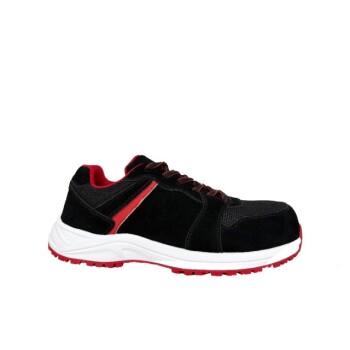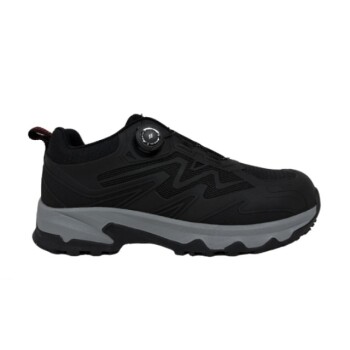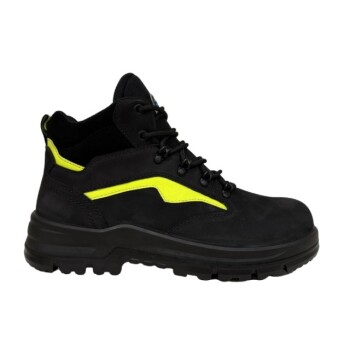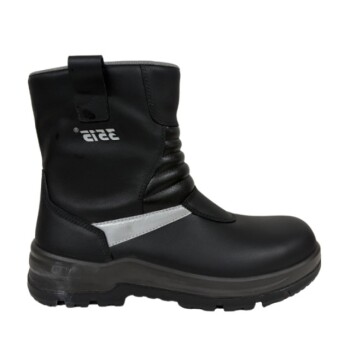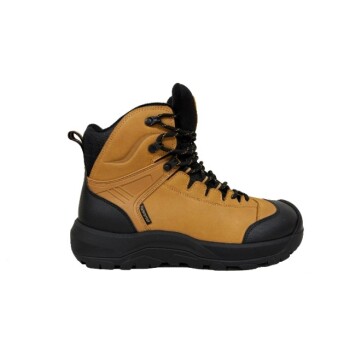The primary alternatives to traditional women's work boots are work shoes, safety sneakers, specialized clogs, and even safety sandals. These options provide varying levels of protection, comfort, and breathability, allowing you to match your footwear directly to your specific job requirements rather than defaulting to a heavy-duty boot.
The most critical factor in choosing an alternative is not the style of the shoe, but its certified safety features. Your goal is to accurately assess your workplace hazards and select the lightest, most comfortable option that still meets or exceeds the required safety standards.
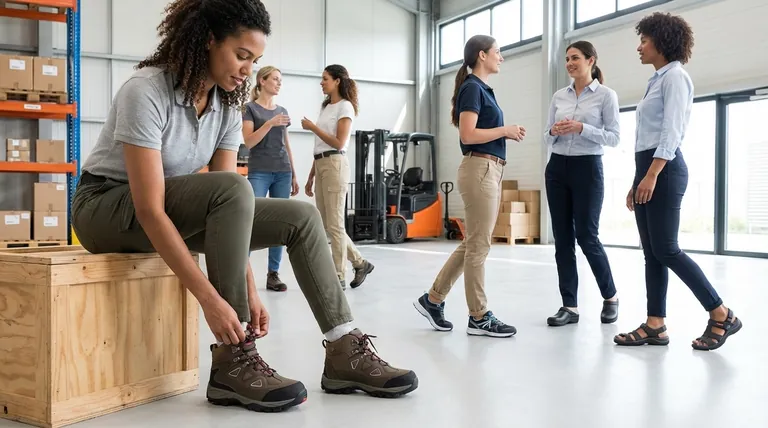
A Spectrum of Alternatives: Moving Beyond the Boot
While traditional boots offer maximum protection, many roles have different requirements where comfort and mobility are equally important. Understanding the available options allows for a more tailored and effective choice.
The Work Shoe: A Lighter Approach
Work shoes offer a more casual, lightweight profile than boots. They often resemble everyday footwear but are built with more durable materials and may include basic safety features like slip-resistant outsoles.
They are an excellent middle-ground for environments that demand durability without the need for heavy-duty impact protection.
The Safety Sneaker: Comfort Meets Compliance
For jobs that involve constant walking or standing, safety sneakers are a leading alternative. They combine the comfort and flexibility of an athletic shoe with critical safety elements.
Look for models with slip-resistant soles and lightweight composite or alloy safety toes for protection in less hazardous settings like logistics, warehousing, or light manufacturing.
The Clog: For Specialized Indoor Environments
Clogs are the standard in industries like healthcare and hospitality for a reason. Their easy-to-clean, often fluid-resistant design is ideal for maintaining hygiene.
Their primary safety feature is typically a high-traction, slip-resistant outsole designed for performance on smooth or wet indoor floors.
The Hiking Boot: A Rugged, Versatile Option
For outdoor work on uneven terrain that doesn't require industrial-grade protection, a sturdy hiking boot can be a superior choice.
They prioritize grip, traction, and ankle support, making them ideal for professionals in landscaping, surveying, or environmental fieldwork.
The Safety Sandal: For Maximum Breathability
In very warm and controlled environments where toe protection is still necessary, safety sandals offer a solution. They provide a protective toe cap while allowing for maximum airflow.
This is a specialized option best suited for specific indoor roles where impact hazards are minimal and breathability is a top priority.
Understanding the Trade-offs: Protection vs. Comfort
Choosing an alternative to a full work boot inherently involves balancing different factors. Being aware of these trade-offs is key to making a responsible decision.
Reduced Ankle Support
Most alternatives, particularly shoes, sneakers, and clogs, offer significantly less ankle support than a 6-inch or 8-inch boot. This can increase the risk of sprains on uneven or unstable surfaces.
Varying Impact and Puncture Resistance
While many alternatives have safety toes, they may lack other protective features common in heavy-duty boots, such as puncture-resistant plates in the sole or metatarsal guards for the top of the foot.
Navigating Workplace Regulations
The most significant consideration is compliance. Your employer and regulatory bodies like OSHA have specific footwear requirements for your role. Always verify that your chosen alternative meets the necessary safety standards before wearing it on the job.
How to Choose the Right Alternative for Your Role
Your decision should be driven by a clear assessment of your daily tasks and environment.
- If your primary focus is all-day comfort in a low-hazard role: A safety sneaker with a composite toe and slip-resistant sole is likely your best choice.
- If your primary focus is hygiene and slip-resistance indoors: A specialized, non-slip professional clog is the industry standard for a reason.
- If your primary focus is grip and support on outdoor terrain: A durable hiking boot offers superior traction and stability compared to other alternatives.
- If your primary focus is breathability in a warm, controlled setting: A safety sandal can provide necessary toe protection without excess heat, provided it's approved for your site.
Ultimately, choosing the right footwear is about aligning certified protection with your personal comfort and daily tasks.
Summary Table:
| Alternative | Best For | Key Features |
|---|---|---|
| Work Shoes | Low-hazard roles, durability | Lightweight, slip-resistant soles |
| Safety Sneakers | All-day comfort, walking/standing | Composite toe, athletic-style comfort |
| Clogs | Healthcare, hospitality, indoors | Easy-to-clean, slip-resistant |
| Hiking Boots | Outdoor terrain, uneven ground | Ankle support, superior traction |
| Safety Sandals | Warm environments, breathability | Protective toe cap, maximum airflow |
Need a reliable source for all types of women's safety footwear?
As a large-scale manufacturer, 3515 produces a comprehensive range of footwear for distributors, brand owners, and bulk clients. Whether you need safety sneakers, durable work shoes, or specialized clogs, our production capabilities encompass all types of shoes and boots to meet your specific safety and comfort requirements.
Contact us today to discuss your needs and get a quote!
Visual Guide
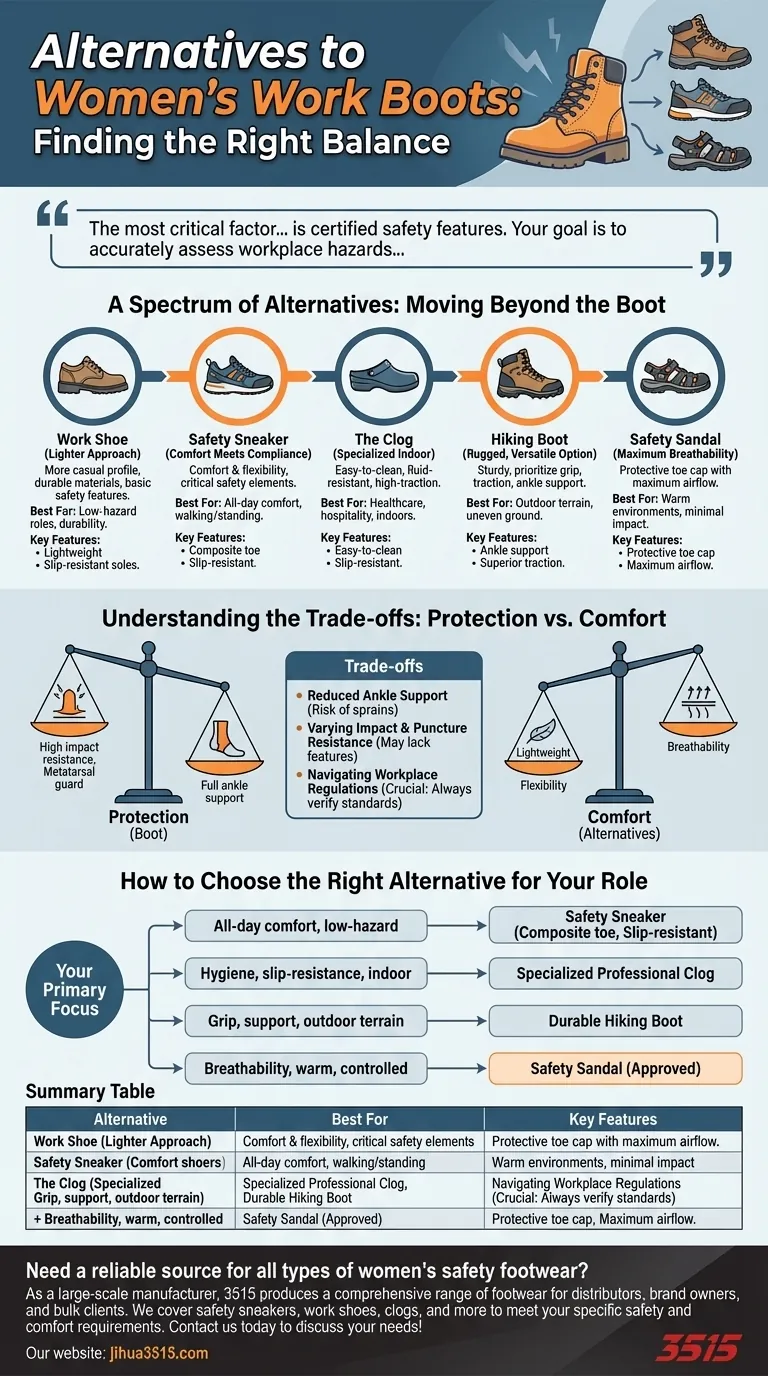
Related Products
- Safety Footwear Wholesale Manufacturer for Custom OEM/ODM Production
- Premium Flame-Retardant Waterproof Safety Boots and Shoes
- Wholesale Safety Footwear Manufacturer for Bulk & Custom OEM Orders
- Heavy Duty Nubuck Safety Boots Safety Shoes for Global Distribution
- Premium Sport Style Safety Boots for Bulk Orders
People Also Ask
- What are the primary protective functions of composite-toe boots? A Guide to Modern Safety Footwear
- What materials are used for safety toes? Choose Steel, Composite, or Aluminum for Your Work Boots
- What cultural and environmental considerations are tied to wearing shoes indoors? Balance Hygiene, Tradition, and Foot Health
- What type of footwear is required in meatpacking and poultry plants due to slippery conditions? Essential Safety Boots for Slippery Floors
- Can heavy duty work boots be worn daily outside of work? Discover Durable, All-Day Comfort



